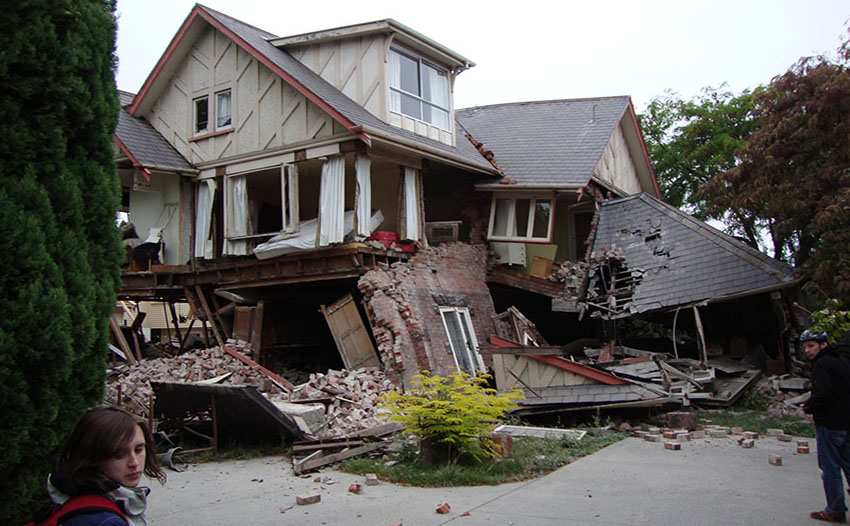Earthquakes are not predictable. Nor is a tsunami which sometimes is a result of a quake. Fortunately,
earthquakes are usually far less dangerous than a hurricane, flash-flood or tsunami, and generally last
less than a minute. Earthquakes occur when cracks beneath the surface of the earth (fault-lines) shift,
and the movement can often be felt several miles away from its origin. There is a common
misconception that if you don't live near a fault-line, that you are not in danger of being impacted by an
earthquake. In fact, all 50 states and U.S. territories are at risk, some more than others. If you happen
to live near a fault-line, it’s a good idea to become familiar with your surroundings so you can formulate
a plan in the event a quake occurs. This might include hiding underneath sturdy furniture or moving to a
corner if there isn't any furniture nearby.
If you begin to feel shaking and you're indoors, remain indoors. Don't try to run outside during an
earthquake. Both the shaking floor and falling debris can cause injuries. Immediately drop to the floor
on your hands and knees and move to a safe place, such as underneath a sturdy piece furniture or move
to the nearest corner and cover your head and neck with your hands and arms to protect yourself from
falling debris. Remember to stay away from windows and doors. If none of the above is possible, try to
find a sturdy object to hold onto and stay there until the shaking stops.
Earthquakes can happen at any time of the day or night. If you find yourself in bed at night during an
earthquake, drop to the floor and stay there. Frantic moving in the dark may result in injuries, and
staying still on the floor is best.
If you’re outdoors during an earthquake, stay outdoors. Move away from electrical wires and buildings
to avoid injury. Be aware of any debris falling from the buildings nearby. If you’re driving, pull over
quickly if you feel you can do so safely. If you’re surrounded by trees or buildings, try to move away from
them as these may pose a threat. Once you feel you’re in a safe spot, put your hazard lights on and
remain there until the shaking stops. Proceed with extreme caution as often quakes will split roads and
damage bridges and underpasses causing driving hazards.
Once the shaking subsides, move yourself outdoors and away from any damaged buildings.
Be prepared to drop to the floor again in the event the shaking returns. Aftershocks may occur shortly
after the initial shaking. If you have a cell phone, call your emergency hot line if you or anyone nearby
are trapped or injured. Then take necessary steps to save your cell phone battery in the event you need
to call later if not soon rescued. If you are trapped, don't move. You don't know how bad your
surroundings may be, and trying to free yourself could make matters worse. If you can, yell or bang on
anything near you so rescue workers know you need help.
